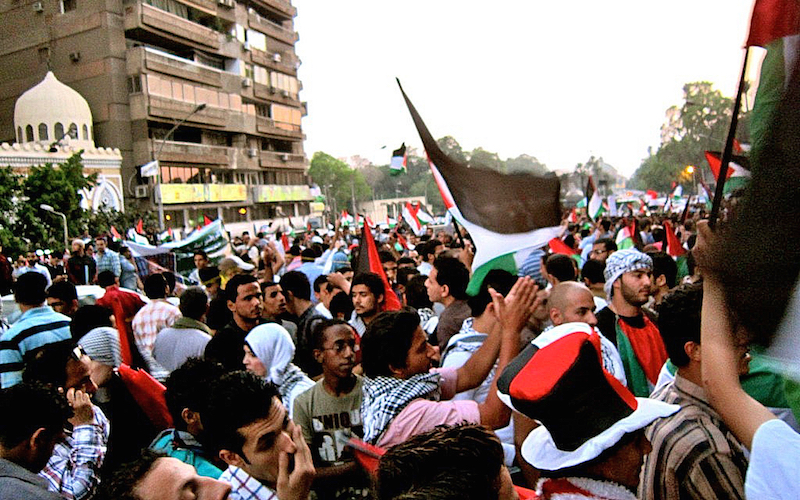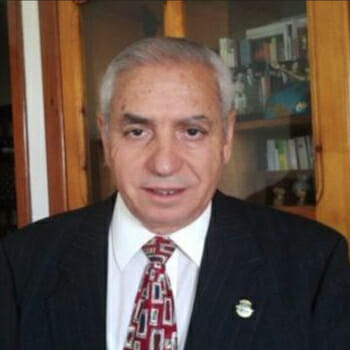
Post-Arab Spring: What Comes First, Bread or Democracy?
Many people from the Arab Spring countries regret that their country’s dictatorships were booted out of power a few years ago because the result has not led to democracy, as they were told, nor have their living standards improved. Worse, they now face daily instability and all the dangers it entails including loss of jobs and sectarian strife and violence.
Ethnic and religious minority groups feeling unsafe in this new environment, where the states, where there are still states, are engrossed in power struggles and cannot ensure stability nor security. As a result, many who have the means, are removing their assets and moving to safe havens in the West. This means that national capital and jobs are lost. Foreign investment as well is leaving and the economies are feeling the pinch or going bankrupt.
Consequently, many countries are joining the ranks of failed states such as: Libya, Syria and maybe, soon, Yemen. In the face of these unfortunate developments, Middle East specialists are asking the classical question: What comes first bread or democracy?
In most of the non-oil producing Arab countries, society is made up of two distinct classes: poor and rich, which in turn are divided into poor and very poor and rich and very rich. The middle class that had existed in the past is now history. So, inside each of these countries there are two distinct social groups, with two distinct identities and territories. In many cases, the role of existing governments is to keep these two groups separate to avoid any possible friction that could create strife and unrest.
For many poor people of the Arab Spring countries, the dream of democracy, they might have entertained at some point, is forgotten because, for the majority, it means losing daily bread and somewhat living in tribal solidarity, which is still active, but might disappear soon due to unbearable pressure. When this is over, people will either go to the streets to ask for alms and join the growing army of beggars or turn to banditry. Those who shy from both, out of dignity and self-respect, will slowly die.
Lack of bread and prospects will turn the cities into large zones of instability and insecurity, ruled by mafia lords who will use bread to subjugate the poor and coerce them to achieve their criminal objectives. These lords might supplant central authority or cooperate with it to keep the poor under control by feeding them in return for their services. The central state might sublet security and stability to these illegal groups. The insecurity of the individual within the empires of the criminals or war lords will have dire consequences for stability and peace because of the proliferation of arms and an increase of violent crime.
In a country like Libya this failed state scenario is already occurring. The state and the army have been non-existent for almost a year and the numerous militias are ruling the different cities and regions and providing for the needs of the population, thus keeping them under control and using them when necessary to further their agendas.
Libya, today, resembles Muslim Spain of the 11th, 12th and 13th centuries, under the rule of various Taifa kings in their petty kingdoms. The Taifa kings in Spain heralded the end of the Muslim civilization which culminated in the fall of Grenada in 1492 and the completion of the Reconquista, followed by the inquisition. The Libyan “Taifas” have heralded the fall of the state of Libya and the return to the ancestral tribal system.
Yemen also is returning swiftly to the tribal system. Actually, the Yemenis never trusted nor believed in the state. Indeed, it seems that the ousted president Ali Saleh, who still lives in the country, does not want Yemen to remain united but wants it to be tribal and, consequently, has incited the Houthis to lay siege to the capital, an incident that has incensed the Americans who threatened to freeze Saleh’s American assets and revoke his American visa. Tribal solidarity in Yemen will prevail over the state, which is a useless entity for the Yemenis, because the tribe can provide the bread, not the state, especially in times of turmoil.
In Egypt, if ever the state fails, two nightmare scenarios could occur, the cities will be ruled by crime lords, who will secure allegiance by providing bread and some limited services. In the countryside, people will revert to their tribes which have never disappeared. But, this is more unlikely in Egypt because the state is the army and the army is powerful and resourceful and, also, because Egyptian society is highly educated and would never accept tribalism.
In Syria, democracy is truly a luxury or rather an intellectual abstract concept that is difficult to understand. People living under the state of Bachar are provided with bread on the condition that they give up on democracy. For people living in the lands under the control of the war lords, Islamist or others, the people are not provided with bread but these violent groups take whatever bread the people may have and provide them with nothing in return. If they resist, they are killed and their families used and abused. So in this case, there is neither bread nor democracy, there is only some sort of limbo punctuated by violence and arbitrariness.
In Morocco, the monarchy thrives because of two important factors: historical legitimacy of rule without interruption since the 9th century and its religious role embodied in the sultan as commander of the faithful amir al-mu’minin. Back in 1996, the monarchy initiated incremental democracy and a slow devolution of power. It is true Moroccans earn bread with difficulty but they can also boast that they enjoy some democracy.
The monarchy in Jordan has, likewise, initiated some form of incremental democracy and the monarch is viewed by the majority of people as the sole guarantor of stability in the country. Indeed, stability is important for a country that has no resources and only survives through trade, tourism and the largesse of the Gulf States. Stability is also important for a state in which over half of the population is Palestinian. For the Bedouins, the monarchy guarantees their survival and the same is true for the Palestinians.
The rich Gulf States provide bread free of charge and all related creature comforts to the population. Indeed, all services are free; education, health, and housing. Furthermore, grants are given to the population to buy cars or get married.
At the height of the Arab uprisings, these countries, frightened by the prospect of possible revolutions, hurriedly gave the population cash handouts to buy them off. These patriarchal and tribal political systems are extremely generous when it comes to bread but will not tolerate democracy because it threatens their existence and their regimes.
Under the pressure of their protector, the United States, these countries have made some minimal democratic changes to please the West. However, these changes are more for the purpose of rendering services to the people than for making their regimes more democratic.
All in all, the Gulf countries owe their political survival and present stability and security mainly to the hypocrisy and opportunism of the West that denounces dictatorships elsewhere and, also, to religious conservatism and tribal allegiance. The ruling Gulf families are very generous with their people, but do not accept opposition. They want total subservience and docility in return for bread galore.
Is there hope for democracy in the Arab world?
Yes, there is hope, it is called Tunisia. Tunisia kick-started the Arab Spring in 2010 from the provincial city of Sidi Bouzid, where a young man named Bouazizi was fed up with struggling daily for bread. He, unselfishly, sacrificed himself to fight for bread and democracy. His sacrifice was, undoubtedly, not in vain, for it led to the Arab uprisings, but most importantly to democracy today in Tunisia. In 2011, Tunisia booted the dictator Ben Ali, voted in the Islamists of Ennahda, who set about to re-Islamize the society, but the Tunisians rejected this model, first in the streets by daily protests and later through the ballot box. The courageous and determined Tunisian people imposed their will on the politicians by choosing to enter into the modern world by voting in a civil constitution and bringing to power the secularists of Nidaa Tounes and relegating the Islamists of Ennahda to the opposition. By so doing, the Tunisians are showing the rest of the Arab world that you can have your cake and eat it too. As such, they are having bread and the luxury of democracy. Will other Arab countries follow suit?

